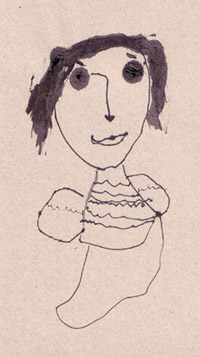LAYLA
ABDELRAHIM'S
HOME PAGE
2004-2005
Modernism and Education:
Revised
Perspectives on Meaning, Value and Practice
“Most Americans don't really like children... even their own!
Adults don't trust youngsters, and school is an institutional
expression of that fact.”
John Holt
(interview by Robert Gilman, summer 1984)
Any ideal or material production depends on the forces that drive
individuals to reproduce. Thus, production is only possible through the
reproduction of bodies and minds. Contemporary obligatory education
plays a vital role in the way we conceive our roles in the world and
whether we approach re/production (socio/cultural and of species)
actively or passively. Education is responsible for the inculcation of
a specific life-stance or type of habitus and praxis – the subtlest
guides of our behaviour. In other words, it is the most important
instrument of institutionalization.
"The habitus - embodied history, internalized as a second
nature and so forgotten as history - is the active presence of the
whole past of which it is the product. As such, it is immediate
present. This autonomy is that of the past, enacted and acting, which
functioning as accumulated, produces history on the basis of history
and so ensures the permanence in change that makes the individual agent
a world within the world. The habitus is a spontaneity without
consciousness or will..."
Bourdieu, The Logic of Practice
I consider this paper to be my most important work so far. Here, I
examine the type of habitus that contemporary obligatory education
inculcates, i.e. Education’s basic principle. Education is one of the
most globalized products of Western Europe. After all, it is from there
that the colonizers of the American Wild West emerged, conquering the
territories of aboriginal cultures. I use Russian pedagogical thinkers
and Western theorists among whom John Holt and John T. Gatto - American
educational critics and proponents of home-schooling - to debate and
reveal its drawbacks and possibilities.
